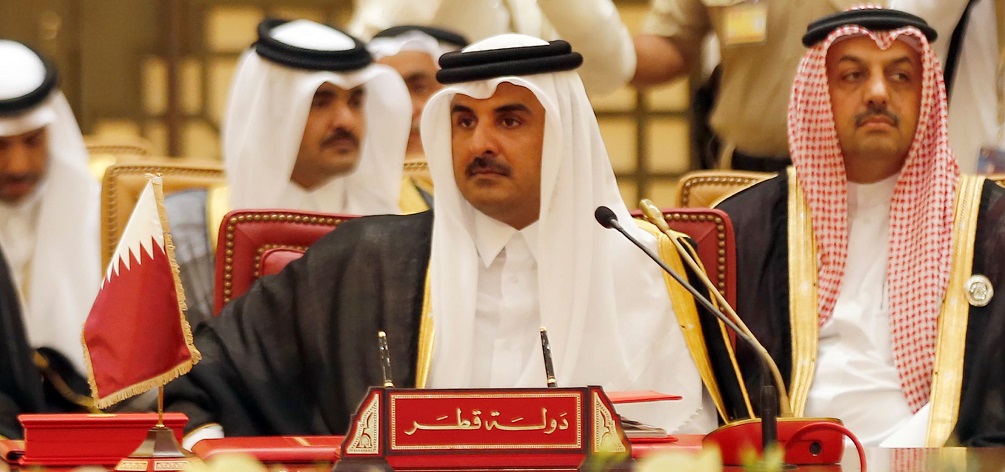Alwaght- After news spread that Qatar sent a letter to Saudi Arabia calling for bilateral negotiations with Kuwait’s mediation, the Emirati Minister of State for Foreign Affairs Anwar Gargash frantically posted a link of an article in Al-Khalij newspaper, mainly reflecting Emirate’s concerns about the new Qatari plan to settle the dispute with Saudi Arabia. The article brazenly warned Kuwait not to mediate to solve the diplomatic crisis between the Persian Gulf Arab monarchies that sparked in 2017 when Riyadh, along with Abu Dhabi, Cairo, and Manama accused Doha of supporting terrorism and befriending Iran against the Arab interests and severed diplomatic relations with it. The Abu Dhabi move brings about some questions: What is the UAE role in the tensions with Qatar? And why are Qataris seek to negotiate with Saudis without presence of Emiratis?
Qatar-UAE disputes
Ali al-Halil, a Qatari professor of political science, said that the Qatari leaders have the conviction that their problems with Saudi Arabia are less than theirs with the UAE, and not even all of the Emirates.
The excuse for the UAE to cut off diplomatic ties with Qatar was Doha’s rejection to extradite an opposition figure living in exile in Qatar. But the Qatari-Emirati differences go beyond this issue. In 1995, after Hamad bin Khalifa Al Thani assumed the power in the small Persian Gulf emirate, the UAE took steps to undermine his rule. In September 2014, reports suggested that the Emiratis spend some $3 million on anti-Qatari lobbying in the US, reportedly in response to Doha’s support to the Muslim Brotherhood, an Islamist movement with deep influence and large-scale support in the Arab world.
After severing the relations with Doha, Abu Dhabi took tough stances that proved the reason for the diplomatic rift was not simply sparked by a political expatriate. In March 2018, Gargash tweeted that as long as Qatar continued support for terrorism, there was no way of normalization with it. At least 3 out of 13 blockading countries’ demands were introduced by the UAE. One was that Qatar should not grant citizenship to Egyptian, Saudi, Emirati, and Bahraini nationals and expel those already living in the Arab state. Accepting these demands was humiliating to Doha and could be bowing to a baseless charge.
The UAE, which is in geopolitical competition with Saudi Arabia in Yemen, seeks to move ahead in the race of regional influence against other Arab states. It deems Qatar the most important economic rival and takes pains to hit Doha economically and politically. These Emirati actions push away Qatar from multi-party talks with the four blockading countries.
Anti-Saudi international pressures grow, anti-Qatari ban fails
The broadening Saudi-Emirati gaps on the one hand and the regional changes on the other hand appear to have motivated the Qatari leaders to show a willingness to settle the differences with the Saudis.
The Saudi leaders now understand that the sanctioning policy has failed to meet its goals against Qatar and there is no optimism it will realize what they seek. As an independent country, Qatar has the right to take independent stances. Its foreign policy shows that Qatar takes its positions based on the region’s historical and geographical realities without taking influence from other countries. Now the illegitimate sanctions against Qatar have backfired, damaging the credibility of the banning bloc.
Furthermore, over the past two years, Saudi Arabia embarked on extremist policies, including killing the prominent Saudi journalist Jamal Khashoggi who was assassinated by a Saudi-sent hit squad at the Saudi consulate in Istanbul in early October 2018. The outcome of these policies has been an increase in the international community’s pressures against Riyadh. Here is the point where Saudi Arabia began to somehow change its policies or at least pretend to review them. On October 24, 2018, less than a month after Khashoggi murder, Crown Prince Mohammed bin Salman in a surprise shift praised the resilience of Qatar’s “strong economy.” He made the comments during an international investment conference in Riyadh where he said that after five years, the Qatari economy grew stronger.
In late December last year, Saudi Arabia dismissed its Foreign Minister Adel al-Jubeir who was a face of the country’s aggressive foreign policy and replaced him with Ibrahim al-Assaf, signaling that it is ready to review its policies. New FM softened the kingdom’s foreign stances. Since then, other Arab states began to question the legitimacy of the anti-Qatari pressure campaign.
The crown prince’s differences with his father King Salman bin Abdulaziz are another reason for the Qatari extension of the hand to reconciliation. Reports say that recently the king’s row with his son has boiled over, with him striping Prince Mohammed of some of his powers. The king seems to take steps to repair the damages caused by Mohammed’s policy regarding Palestine cause and Qatar diplomatic crisis. This motivates Doha to move to bilateral dialogue with Riyadh.
Doha is ready to unconditionally negotiate with Saudi Arabia with Kuwaiti mediation. In December 2018, Mohammed bin Abdulrahman bin Jassim Al Thani, Qatar’s FM, in a Doha conference highlighted the need for common approaches to face the regional challenges. Some experts read the remarks as a signal of openness to negotiation with Saudi Arabia with Kuwait as a mediator.
However, the UAE seems to be a deal destroyer. Abu Dhabi in 2018 rejected a Kuwaiti proposal to mediate between Qatar and the UAE. Now and after hearing about the Qatari message to Riyadh, it finds itself even lonelier than ever. In the last struggle to save its face, Abu Dhabi seeks to foist its conditions on the Qataris or prevent a Saudi-Qatari reconciliation.



























